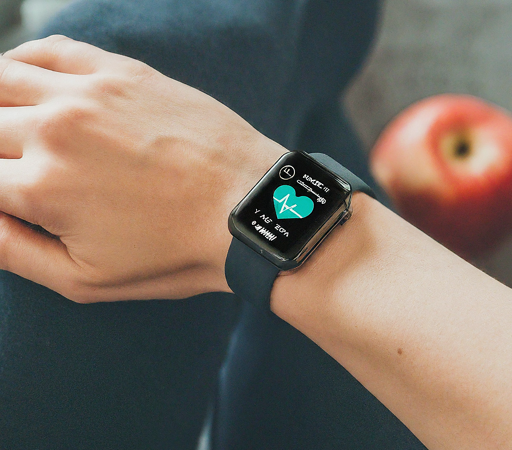Introducing Dr. Anna Li Dr. Anna Li, a seasoned physician with over 15 years of experience, is passionate about the intersection of technology and healthcare. In this article, Dr. Li dives into the most transformative tech trends shaping the future of medicine, offering valuable insights for healthcare professionals, patients, tech enthusiasts, and investors alike. Unveiling
Introducing Dr. Anna Li
Dr. Anna Li, a seasoned physician with over 15 years of experience, is passionate about the intersection of technology and healthcare. In this article, Dr. Li dives into the most transformative tech trends shaping the future of medicine, offering valuable insights for healthcare professionals, patients, tech enthusiasts, and investors alike.
Unveiling the Future: A Glimpse into Tech-Driven Healthcare
The healthcare landscape is undergoing a seismic shift fueled by innovation. From the rise of artificial intelligence (AI) to the proliferation of wearable devices, technology is rapidly transforming the way we diagnose, treat, and manage health. This article delves into the top tech trends poised to revolutionize healthcare, empowering a future of personalized, accessible, and efficient medical care.
Top Tech Trends Reshaping Healthcare
- The Power of AI: AI algorithms are being harnessed for tasks like analyzing medical images, identifying disease patterns, and even assisting in complex surgeries. This translates to faster diagnoses, improved treatment planning, and potentially life-saving interventions.
- Wearables on the Rise: Wearable devices like smartwatches and fitness trackers are continuously collecting valuable health data. This real-time information empowers patients and doctors to monitor chronic conditions, detect early signs of illness, and promote preventative healthcare.
- Telemedicine Transforms Access: Telemedicine platforms allow for remote consultations, making healthcare more accessible for those in geographically remote areas or facing mobility challenges. This technology expands access to specialists, improves convenience for patients, and streamlines communication with healthcare providers.
- The Age of Robotics: Robots are entering the operating room, assisting surgeons with precision and minimally invasive procedures. Additionally, robots are employed for rehabilitation, medication dispensing, and even patient companionship, enhancing care delivery and improving patient outcomes.
- Big Data for Better Health: The vast amount of healthcare data generated daily holds immense potential. By leveraging big data analytics, healthcare professionals can gain deeper insights into disease patterns, develop personalized treatment plans, and ultimately improve population health outcomes.
Tech Trends in Healthcare – A Snapshot
| Tech Trend | Key Benefits | Examples |
| AI | Improved diagnostics, personalized treatment plans, and streamlined workflows | AI-powered image analysis, virtual assistants for medication management |
| Wearables | Real-time health monitoring, early disease detection, and preventative healthcare | Smartwatches monitoring heart rate, fitness trackers measuring sleep patterns |
| Telemedicine | Increased access to specialists, convenient consultations, and improved communication | Remote consultations with doctors, online therapy sessions |
| Robotics | Enhanced surgical precision, improved rehabilitation techniques, and efficient care delivery | Robotic surgery systems, robotic exoskeletons for physical therapy, medication dispensing robots |
| Big Data | Deeper understanding of diseases, targeted interventions, and improved population health | Analyzing patient data to identify risk factors, tailoring treatment plans based on individual needs |

Picture by: Google Gemini
A Comparative Perspective: Traditional vs. Tech-Driven Healthcare
This table provides a comparative overview of traditional and tech-driven healthcare, highlighting the transformative potential of technology.
| Feature | Traditional Healthcare | Tech-Driven Healthcare |
| Access | Limited by geographical location and specialist availability | Increased access through telemedicine and remote monitoring |
| Data Management | Fragmented records and limited access | Integrated data platforms for holistic patient view |
| Diagnosis | Reliant on physician expertise and subjective interpretations | AI-powered analysis for improved accuracy and efficiency |
| Treatment | Standardized protocols and limited options | Personalized treatment plans based on individual data |
| Patient Engagement | Passive participation | Active participation in health management through wearables and apps |
Embracing the Future: Opportunities and Challenges
The integration of technology in healthcare presents a plethora of opportunities. However, challenges need to be addressed to ensure equitable and ethical implementation. Data privacy and security are paramount concerns. Additionally, ensuring equitable access to technology and bridging the digital divide remains crucial.
Conclusion: A Collaborative Future
The future of healthcare is undeniably tech-driven. By embracing these advancements, healthcare professionals, patients, and technology innovators can work together to create a future of personalized care, improved accessibility, and ultimately, a healthier population.
















